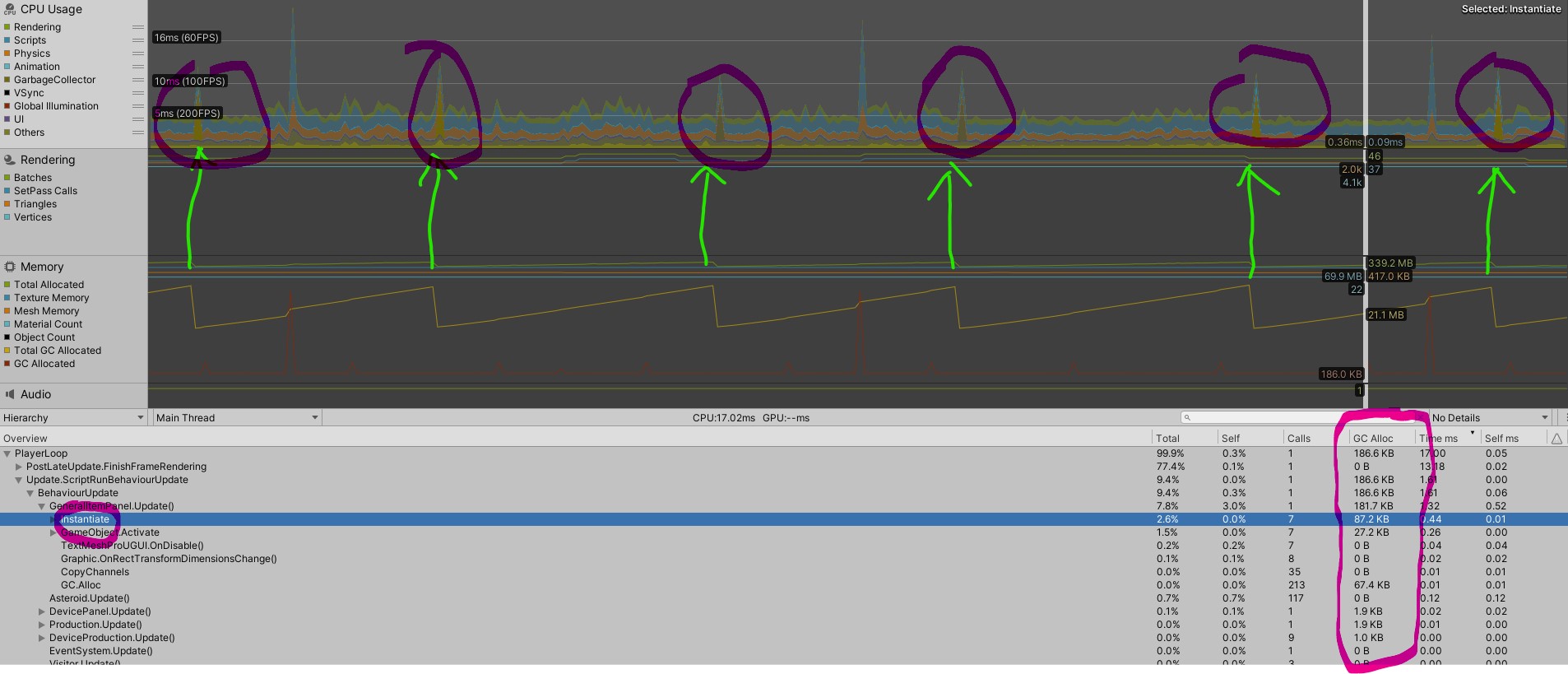(0.12.6) Bug: GeneralItemPanel.Update method is allocating >10MB of garbage memory PER SECOND.
This leads to GC.Collect() calls causing this pattern of CPU spikes:

This 180KB seems like nothing... until you actually multiply it by your framerate.
One probably won't even notice this bump on high-end machine but it can seriously throttle any weaker laptop or older pc. And for no valid reason really.
PS: I have no idea from where this Instantiate call is coming from but it looks like that is the biggest offender here allocation-wise (consider object pooling).

